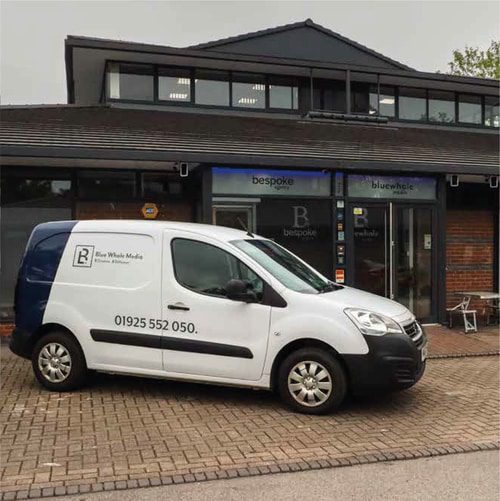
SEO Techniques To Grow Your Website Traffic
Google is getting smarter and better at recognising SEO attempts and techniques. We all know you aren’t going to do very well in the search results if you just repeat one keyword over and over, or if you spam hidden content etc – this is old news. These days, even the basics are getting harder. Those titles and meta descriptions you spent time on to research, write and optimise for? Research shows that for 63% of searches Google will write their own title and description for a snippet. Additionally, Google is getting better at recognising and devaluing your linkbuilding attempts. This evolution, coupled with feature & ad spam we see in many SERPs, it may be easy to think that SEO is getting harder, or perhaps even useless.
In this blog, we’ll look at the techniques of modern search engine optimisation that will grow your website’s organic traffic with SEO.
Content Creation
What is Google’s favourite SEO technique? Writing good content. How many times have we heard Danny Sullivan or John Mueller say “content is king” or “focus on content” etc? Too many times. In fact, every single recommendation in Google’s own SEO Starter Guide comes down to one single subject: content. With all this, who can deny that content is the most effective technique for SEO in 2021?
Firstly, we need to understand what it means to create content for SEO. No, that doesn’t mean you just spam a keyword a few times in your landing page content and titles. Optimising for keyword density is no longer viable and will have your page devalued. These days, you need to prove that your content is highly relevant for a topic rather than a keyword/search term. For example: a piece of content about an iPhone will naturally include keywords such as Apple, Safari, iOS, iPhone etc. This shows that the content is highly relevant for iPhone as a topic, because it is mentioning other things that are highly relevant to iPhones rather than just spamming “iPhone” 12 times around the page. This is known as LSI optimisation.
Blogs
Blogs are a helpful tool within content creation. Whereas content creation is more above the content for your key pages and landing pages, here I will look at blogs as a way to support your landing pages.
Blogs are a perfect way to build internal links to your pages – it’s a known fact that internal links tells search engines which pages on your website to rank. It’s an importance signal – if a page has a lot of internal links then it must be important and therefore should be ranked higher than other pages that might also have relevant content, but lower internal links. This is especially useful and important if for whatever reason you have important pages on your website but don’t want them to appear on your navigation bar, or can’t find a way to link them from the homepage.
Another use of blogs is that Google will accumulate the topics of each page on your website to get a site-wide topic of your website. For example: a company offering website design services should write blogs about web design, development, hosting etc. Eventually Google will understand that all these pages relate to web design, and therefore the website as a whole is highly relevant for searches about web design – it shows that your website is specialised for a specific topic. This is why it’s a bad practice for a website to have a blogging section which caters to all sorts of topics – for instance, if the website design company also blogged about politics, food, holidays etc then Google would start to get confused and the website wouldn’t appear as relevant to website design anymore.
Linkbuilding
The veterans of SEO may remember the glory days of linkbuilding, when you could fire up your GSA tool, hit a few buttons and watch as your website backlink profile grew from 0 to 100,000 all with the exact-match keyword. Back then, you’d see your website hit front page of search results if you did that – today, you’d be swiftly smacked with a penalty and may even have your website deindexed.
Linkbuilding isn’t as simple as it seems, and it can get quite testing for people who do not understand SEO. First things first: links do work and are vital in any SEO campaign if you’re trying to rank for very competitive keywords that will drive the most traffic. So what’s the situation with linkbuilding in 2021?
Well, Google has spent a lot of time to understand backlinks. With complex algorithms and machine learning, Google can understand how relevant a backlink is, whether it is a natural link (paid for or not) and how much link equity should be passed to the link. This is what makes linkbuilding so hard these days – they have to be genuine links from real, relevant websites. Businesses and websites understand their SEO value, so simply asking/begging a webmaster to publish your content with a dofollow backlink isn’t going to work either. Depending on your own website and the keywords you want to target, quality linkbuilding can prove to be a very expensive investment – but it will definitely pay off and you’ll see how much search engines appreciate good, relevant and high-quality backlinks.
Conclusion
So there we have it, the best SEO techniques to use in order to grow your organic search traffic. Essentially: content and links… I guess things really haven’t changed much over the years for SEO. There are of course other things, but these will either have minor impact on your rankings or are simply normal practice these days:
- Website speed: a very important part of user experience, but will have minor impact on your rankings as long as your website speed isn’t absolutely terrible (subjective of course.)
- Mobile-friendly: a basic standard for at least the last 6 years – if your website isn’t mobile-friendly in 2021 then something is seriously wrong.
- Social bookmarking/signals: this does not exist for ranking purposes and will actively devalue your website if it is a main factor of your SEO campaign.
Contact Us To Grow Your Traffic With SEO
Are you looking to grow your website traffic with SEO? Contact us today! We can perform a full website & SEO audit to understand where your website requires improvement and we can provide a free no-obligation, no contract quote for web design & SEO.





